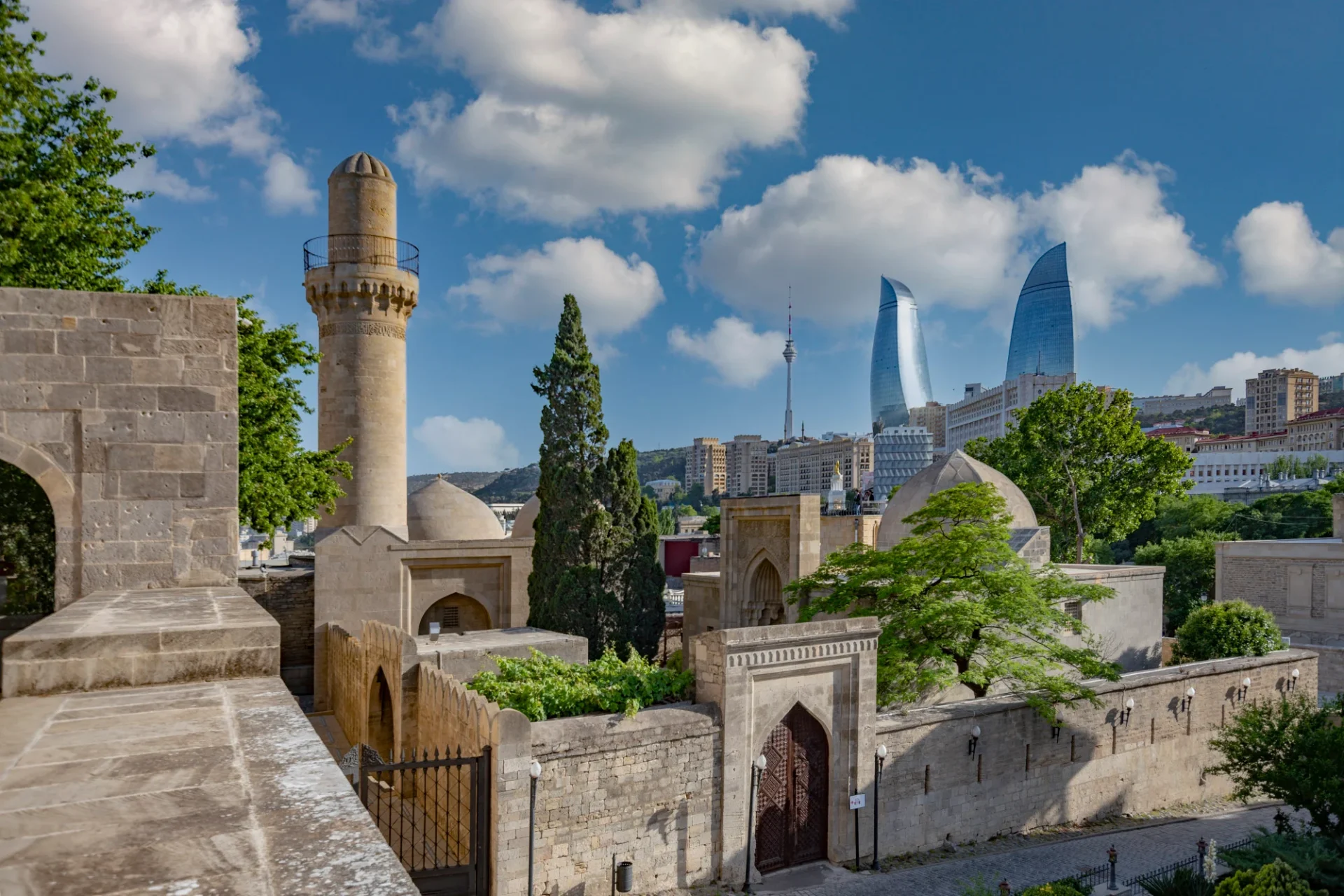Azerbaijan, the largest of the three former Soviet Socialist Republics in the Caucasus region, is bordered by the great Caucasus Mountains, Iran, Turkey, the Black Sea, and the Caspian Sea. The country’s rapid development, fueled by the commercial exploitation of its vast oil reserves since 1871, has set it apart from its neighbors, Armenia and Georgia.
Baku, the capital since 1920, is the largest city and is famously known as “the city of winds” due to the strong gusts from the Caspian Sea. Over the centuries, Baku has been influenced by various cultures and empires, from the Arab conquest in the 7th century to Persian and Ottoman rule, and finally Tsarist Russia’s control in 1828.
Baku’s rich history is reflected in its architecture, particularly in the Old Walled City (Icherisheher). Walking through its cobblestone streets, visitors can see hammams, mosques, teahouses, caravanserais, and sunken gardens that mark Baku as a significant stop on the Old Silk Road. At the top of Icherisheher is the Palace of the Shirvanshahs, a collection of austere sandstone buildings now housing a museum with artifacts such as coins, copper utensils, costumes, and musical instruments. Another iconic monument is the Maiden Tower, possibly dating back to 600 BC, offering stunning views of Baku Bay and the walled city.
Beyond the ancient walls of Icherisheher, Baku showcases its transformation into a modern metropolis. In the late 19th century, wealthy immigrants from Europe built opulent mansions in various architectural styles, earning Baku the nickname “Paris of the Caucasus.”
The collapse of the Soviet Union in 1991 marked Azerbaijan’s emergence as an independent nation, further influencing Baku’s architectural landscape. The Heydar Aliyev Centre, with its flowing lines and soaring glass panes, stands as a symbol of the new Azerbaijan, resembling a fantastical sea creature on a vast green beach. The Flame Towers, a trio of skyscrapers designed as giant flames, are another iconic addition, their LED screens creating a captivating light show at night.
Baku also offers several beaches, with Shikhov Beach and Bilgah Beach being popular choices. Shikhov Beach, located 9.5 km south of the city center, features an aqua park and swimming pools. Bilgah Beach, about 30 minutes northeast of Baku, is less polluted and offers amenities such as changing rooms, umbrellas, and sunbeds for a small fee. These beaches are often lined with restaurants serving delicious fish kebabs.
Tea drinking is an integral part of Azerbaijani culture, and a visit to a chaykhana (teahouse) is a must. The chaykhana tea ceremony is a cultural experience where tea is poured into traditional pear-shaped glasses and often spiced with cinnamon, cardamom leaves, lemon, or ginger, accompanied by jams and sweets. Guests sit cross-legged on cushions at low tables, immersing themselves in this unique aspect of Azerbaijani hospitality.
READ MORE:
